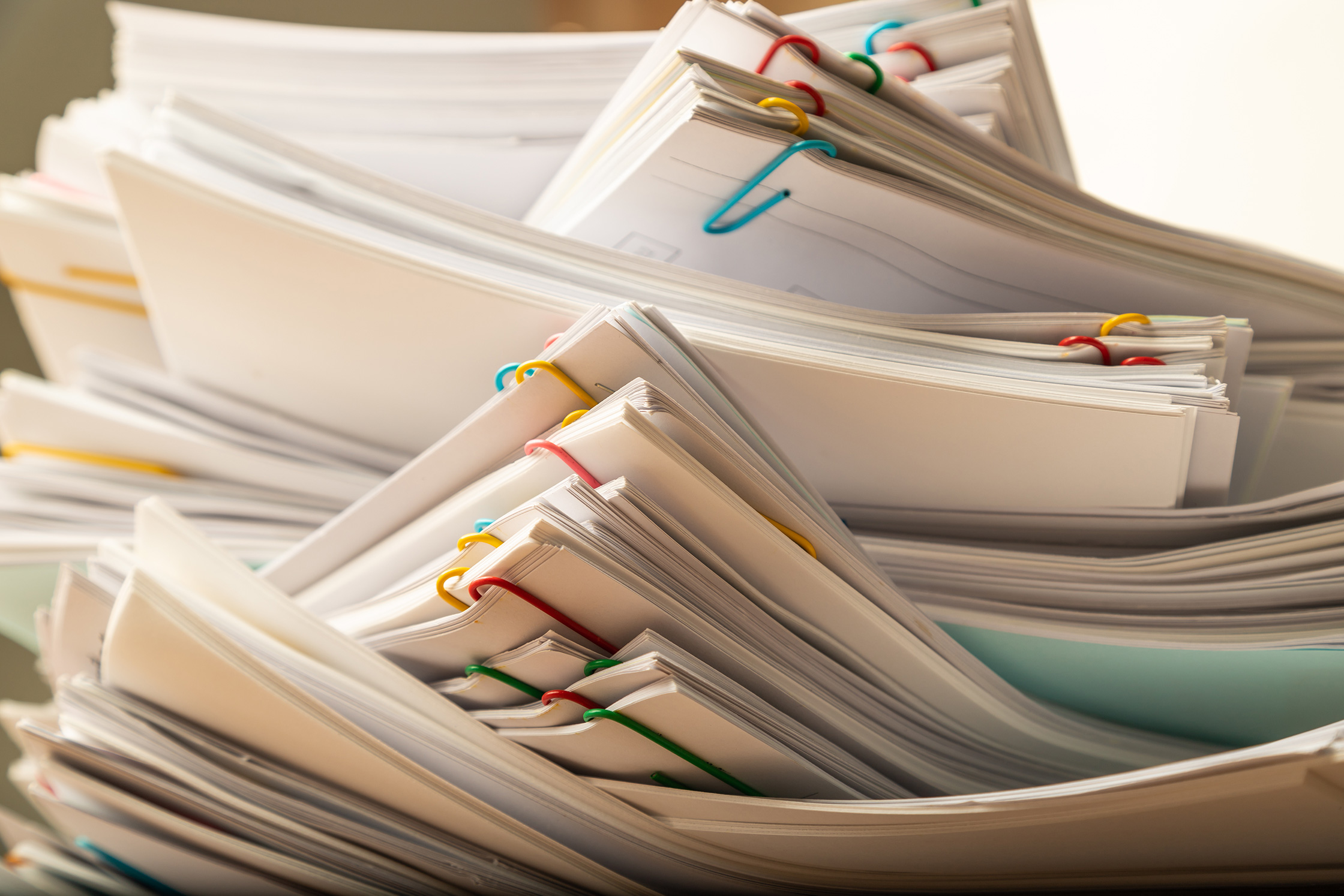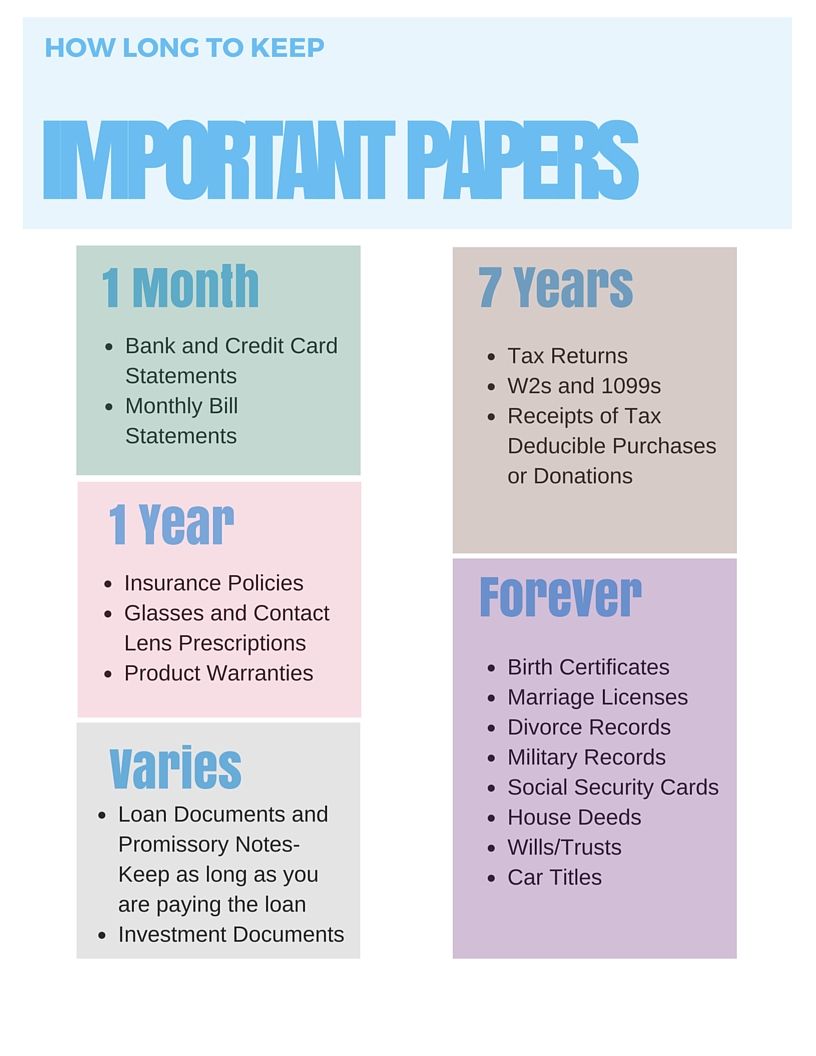How Long Must You Keep Your Paperwork?

Organizing and maintaining your paperwork can often feel like an overwhelming task. From financial documents, medical records, to legal paperwork, it's easy to get lost in a sea of paper. But one of the key aspects that people often overlook is how long you should keep these documents. Knowing the retention periods for various types of paperwork is crucial for legal compliance, tax purposes, and personal organization. In this blog post, we'll guide you through the different categories of paperwork, explain the rationale behind keeping them, and provide you with a detailed retention guide to help you decide when it's safe to shred your records.
Why Document Retention Matters

Before diving into the specifics, understanding why document retention is important will help set the stage:
- Legal Compliance: Certain documents are required by law to be kept for a specific period. Failing to do so can result in legal penalties.
- Tax Purposes: Tax returns and related documents are crucial for audits and understanding your financial history.
- Evidence in Disputes: Documentation can serve as proof in case of disputes with insurers, employers, or in legal proceedings.
- Financial Planning: Keeping records allows you to track your financial health and make informed decisions about investments, estate planning, and more.
Categories of Paperwork and Retention Periods

Financial Documents

- Tax Returns: The IRS generally has three years from when you file your return to audit it, or six years if you’ve significantly underreported income. Therefore, keep your tax returns for at least seven years.
- Bank Statements, Receipts, and Investment Records: Depending on the nature of the document, most should be kept for at least one year, but some need to be retained longer:
- Brokerage Statements: Keep for six years after you’ve sold the securities.
- Home Improvement Records: Retain for the life of the property for both tax and resale purposes.
- Loan Documents: Keep them until the loan is paid off or the statute of limitations on the loan has expired.
- Pay Stubs: Retain these until you have received your annual W-2 form, which verifies your total income for the year. However, keep stubs if they contain year-end bonuses or significant earnings that might be useful for tax purposes or disputes.
- Credit Card Statements: Keep them for at least one year or until you reconcile them with your tax records, unless they contain significant purchases or deductions relevant for tax purposes.
📝 Note: If you’re audited, having documented evidence of your financial transactions is indispensable. Also, consider keeping digital copies as an additional backup.
Insurance Policies

- Keep insurance policies until you get a new policy or the policy expires. However:
- Home Insurance: Retain documentation for the life of the property for claims and when selling the home.
- Health Insurance: Keep claim statements for three years if they involve tax-deductible medical expenses.
- Life Insurance: Keep the policy indefinitely if it remains in force.
Legal and Estate Documents

Legal documents are often kept indefinitely:
- Marriage Certificates, Divorce Decrees, Wills, Trusts, Powers of Attorney: These documents should be kept permanently.
- Birth Certificates: Keep for life; these are irreplaceable and needed for many official processes.
- Property Deeds and Titles: Retain for the life of your ownership plus an additional six years after sale for potential tax issues.
Healthcare and Medical Records

Healthcare records can be more complicated:
- Health Insurance Statements: Keep for three years if they include tax-deductible expenses.
- Immunization Records: Keep for life.
- Medical Bills: Retain for at least one year or longer if the bills are linked to insurance claims or tax deductions.
🏥 Note: In case of chronic illness or ongoing treatment, keep medical records as long as necessary for tracking your health history.
Employment and Education Records

- Employment Contracts: Keep until the employment relationship ends, but retain documents like performance reviews and salary information for your records.
- Resume, Certifications, Degrees: Keep indefinitely.
- Payroll Records: Keep for at least three years to comply with Equal Pay Act and other employment regulations.
- Education Records: Diplomas and transcripts should be kept for life.
The Impact of Digitization on Document Retention

With the rise of digital storage solutions:
- Reduce Physical Clutter: Scanned and backed-up digital copies allow you to securely store and access documents without physical storage.
- Compliance and Safety: Digital backups help meet legal retention requirements while reducing the risk of damage or loss through natural disasters.
- Accessibility: Digital records can be easily accessed, shared, or used for analysis, making financial planning and legal processes smoother.
In wrapping up this guide, it's important to consider that while these retention periods serve as a general guideline, individual circumstances might dictate longer retention times. For instance, if you're involved in a lawsuit or anticipate tax audits, keeping additional paperwork is advisable. Moreover, shredding documents once they've served their purpose is not just about decluttering—it's also about ensuring your personal information remains secure. By maintaining an organized system for paperwork, both in physical and digital formats, you'll be better equipped for audits, legal proceedings, and financial planning. Remember, this guide is here to help you navigate the complex world of document retention, ensuring that you are compliant, organized, and prepared for any eventuality.
Do I really need to keep tax returns for seven years?

+
Yes, it’s recommended to keep tax returns for seven years due to IRS audit periods. This ensures you have the necessary documentation in case of an audit or if you need to file an amended return.
Can I shred all financial documents after one year?

+
No, while many documents can be shredded after one year, certain financial records, like tax-related documents, should be kept for longer periods. Always check specific retention requirements before shredding.
What if I lose important legal documents?

+
If you lose important legal documents like birth certificates or marriage licenses, you can obtain certified copies from the respective issuing agencies. It’s beneficial to keep digital scans as a backup.



